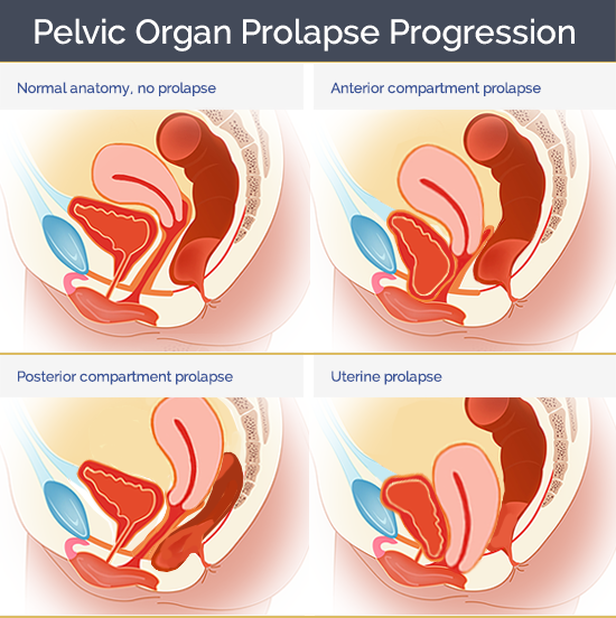|
What is a Prolapse?
A prolapse is a descent of one or more of the pelvic organs into the vagina. This includes; the bladder,( Anterior compartment prolapse), bowels (Posterior compartment prolapse) or uterus(Uterine Prolapse). Symptoms of a Prolapse
What can help my Prolapse?
The surgery approach Surgery can be done to repair torn or stretched support tissues and ligaments. There are different ways to do this surgery including:
After surgery To prevent prolapse coming back again, you should make sure you:
|

